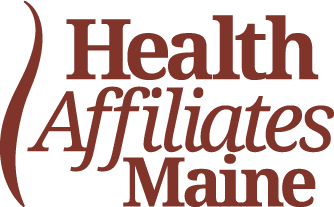Owning your own practice is rewarding. You get to shape your schedule, your approach, and the kind of care you provide. But it also means you’re running a business. The “behind-the-scenes” work can be just as important as the sessions you hold.
Whether you own a private practice or hope to one day, here are a few key areas you don’t want to overlook:
- Liability Insurance: Liability insurance is an important investment in the longevity and security of your private practice — and it should be non-negotiable. It serves as a safeguard to protect you from unexpected liabilities and potential legal repercussions. If you’re not sure where to start when establishing coverage, you can learn more here. Some clinicians also choose to incorporate or establish an LLC, which can provide added protection and clarity in how your business is structured. If you’re not sure where to begin, consulting with a legal advisor can help clarify your best next steps.
- Practice Policies: Policies set expectations and create clarity. Cancellations, communication, payment, and crisis response are all areas worth defining in writing. When you take the time and give the proper considerations, you’ll find these policies help you down the line. Strong policies also support your professional boundaries. From how you handle client absences to whether you allow digital communication outside of session, written guidelines protect both you and your clients.
- Marketing: Marketing doesn’t have to mean flashy ads. An updated online profile, strong referral network, or a clear “who I work with” statement can go a long way. Strive for clarity, consistency, and authenticity while also making your practice more findable. Remember that your “why” matters here — clients connect not only with your services but also with your story and the values that guide your work. Many clinicians start small, leaning on established referral networks, and build visibility over time.
- Finances: From tracking expenses and planning for taxes, financial awareness helps you stay grounded and secure in your work. It’s also important for the sustainability of your practice. For some, managing practice finances looks like consistent tracking in an Excel spreadsheet. For others, it’s the reliance on software. No matter your system, it’s important to keep business and personal finances separate. Having a dedicated account and a consistent billing process not only simplifies tax season but also helps you monitor the financial health of your practice year-round. Partnering with a tax accountant can also be invaluable in identifying deductions and staying compliant.
- Preparing A Will: It’s not always top of mind, but thinking ahead about what happens to your practice if you become unable to work is an important step. A ensures continuity for your clients and clarity for your loved ones. In addition, you may want to consider outlining a plan for clinical coverage in case of an unexpected absence — something as simple as identifying trusted colleagues who could provide short-term support. This foresight demonstrates professionalism and care for your clients’ continuity.
Running a practice means wearing many hats, but you don’t have to wear them all at once. Build a support system — legal advisors, accountants, IT professionals, and peer clinicians can all play a role in sustaining your practice.
And remember, you don’t have to do it all on your own. At Health Affiliates Maine, we support our affiliates with resources like billing services, credentialing, secure technology, and a statewide network of peers. Becoming an affiliate helps you focus more on client care, while we help lighten the administrative load. Start small, grow at your own pace, and know that thoughtful planning — combined with the right support — creates more space for the work you love tomorrow.




